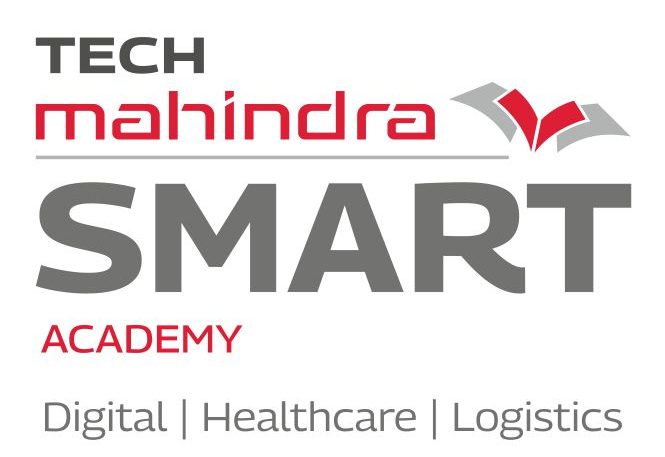Table of Contents
Toggle
In the intricate world of international trade, clarity is paramount. INCOTERMS®, or International Commercial Terms, are a set of standardized trade definitions developed by the International Chamber of Commerce (ICC). These globally recognized terms form the backbone of international shipping and trade agreements, helping businesses navigate cross-border transactions. By defining the specific responsibilities of buyers and sellers, INCOTERMS® serve as a critical framework for reducing misunderstandings and streamlining processes.
At Tech Mahindra Foundation, where Skilling and Skill Development are at the heart of our mission, understanding INCOTERMS® is essential for businesses, especially those looking to upskill their workforce in the domain of logistics and supply chain management. Our SMART Academies offer specialized training in these areas, empowering individuals with the skills needed to thrive in global trade.
The Importance of INCOTERMS®
-
Clarity in Responsibilities
INCOTERMS® provide a clear and concise outline of the obligations of each party in an international transaction. They specify who is responsible for transportation, insurance, and customs duties, ensuring that both the buyer and seller understand their roles. This clarity reduces the risk of disputes and fosters smoother transactions.
-
Standardization
By offering a globally recognized set of terms, INCOTERMS® facilitate easier negotiations and contracts. Both buyers and sellers can refer to the same definitions, which promotes mutual understanding and consistency across international transactions.
-
Risk Management
One of the key features of INCOTERMS® is the way they define when the risk of loss or damage to goods transfers from the seller to the buyer. This clarity helps businesses manage their risk exposure more effectively and avoid potential conflicts.
-
Cost Allocation
INCOTERMS® also outline who bears various shipment costs, from transportation to insurance, providing transparency in pricing and helping businesses avoid unexpected financial burdens.
-
Legal Reference
Recognized by courts and legal bodies worldwide, INCOTERMS® provide a reliable framework for legal proceedings in case of disputes. They offer a clear set of guidelines to resolve conflicts, ensuring fairness and consistency in trade agreements.
-
Adaptability to Different Modes of Transport
INCOTERMS® are flexible and can accommodate various transportation methods, including sea, air, rail, and road, making them adaptable to different types of shipments. This adaptability is critical for businesses in the logistics and supply chain management sectors.
-
Facilitating Trade Across Borders
By standardizing terms, INCOTERMS® simplify cross-border transactions, making international trade more accessible and efficient for businesses of all sizes. This is particularly relevant in today’s globalized economy, where Skilling the workforce to understand and implement these terms can lead to greater operational success.
Key Functions of INCOTERMS®
-
Carriage
INCOTERMS® determine how far the seller will transport goods before the buyer assumes responsibility. This is vital for defining shipping logistics and ensuring timely deliveries.
-
Cost
They specify who arranges and pays for transportation and other costs, which is crucial for accurate pricing. Skill Development in areas like cost analysis and budgeting is essential for businesses to manage these elements effectively.
-
Risk
INCOTERMS® clarify which party bears the risk of loss or damage during transit, helping businesses manage their risk exposure and avoid misunderstandings.
INCOTERMS® 2020 Explained
The latest version of INCOTERMS®, INCOTERMS® 2020, introduces terms that cater to different modes of transport. For Indian exporters and importers, understanding these terms is crucial for smooth and efficient transactions. Let’s break down some of the key terms that are particularly relevant:
INCOTERMS® for Any Mode of Transport

- EXW (Ex Works): The seller’s obligations end when the goods are made available for pick-up at their location. The buyer bears all costs and responsibilities from this point onward.
- FCA (Free Carrier): The seller is responsible for costs until the goods are delivered to the carrier at an agreed location. From this point, the buyer assumes responsibility.
- CPT (Carriage Paid To): The seller covers transportation costs to a specified destination but the risk is transferred to the buyer once goods are handed over to the carrier.
- CIP (Carriage and Insurance Paid To): Like CPT, but includes insurance coverage for the buyer’s risk during transit.
- DAP (Delivered at Place): The seller covers all costs and risks until the goods arrive at the destination, but they are not unloaded.
- DPU (Delivered at Place Unloaded): The seller covers costs and risks until goods are unloaded at the destination.
- DDP (Delivered Duty Paid): The seller covers all costs and risks, including customs duties, until the goods arrive at the destination.
INCOTERMS® for Sea and Inland Waterway Transport

For businesses relying on maritime shipping, there are specific INCOTERMS® that apply:
- FAS (Free Alongside Ship): The risk transfers to the buyer once the goods are placed alongside the ship, with the seller responsible for all costs up to this point.
- FOB (Free On Board): The seller covers the costs and risks until goods are loaded onto the ship. The risk transfers to the buyer once the goods are on board.
- CFR (Cost and Freight): The seller pays for the cost of transportation to the destination port, but risk transfers once the goods are loaded onto the ship.
- CIF (Cost, Insurance, and Freight): The seller covers the cost, freight, and insurance until the goods reach the destination port. The risk transfers when the goods are loaded onto the ship.
Conclusion
For Indian businesses engaged in global trade, understanding INCOTERMS® 2020 is critical for navigating the complexities of international shipping. By clearly defining responsibilities, risks, and costs, INCOTERMS® provide a robust framework for smoother transactions and help build trust between trading partners.
As global markets continue to evolve, embracing INCOTERMS® will not only enhance operational efficiency but also help Indian exporters and importers compete more effectively on the world stage. By investing in Skilling and Skill Development programs—such as those offered by Tech Mahindra Foundation—businesses can reduce risks, increase clarity in their agreements, and drive growth in international markets.

